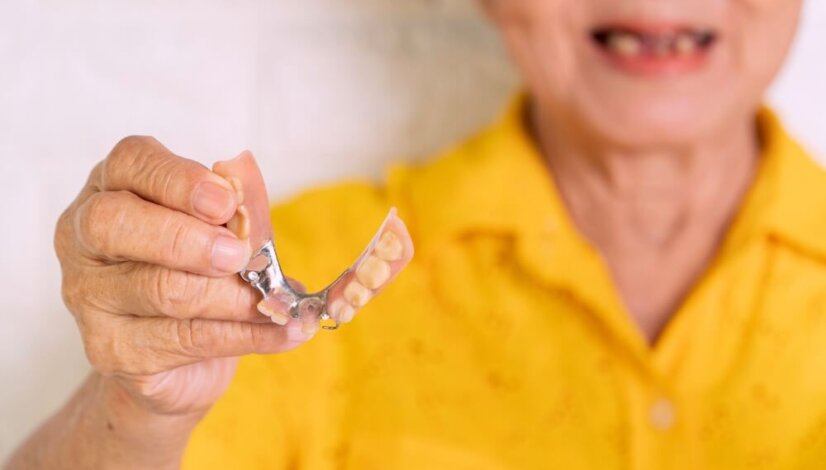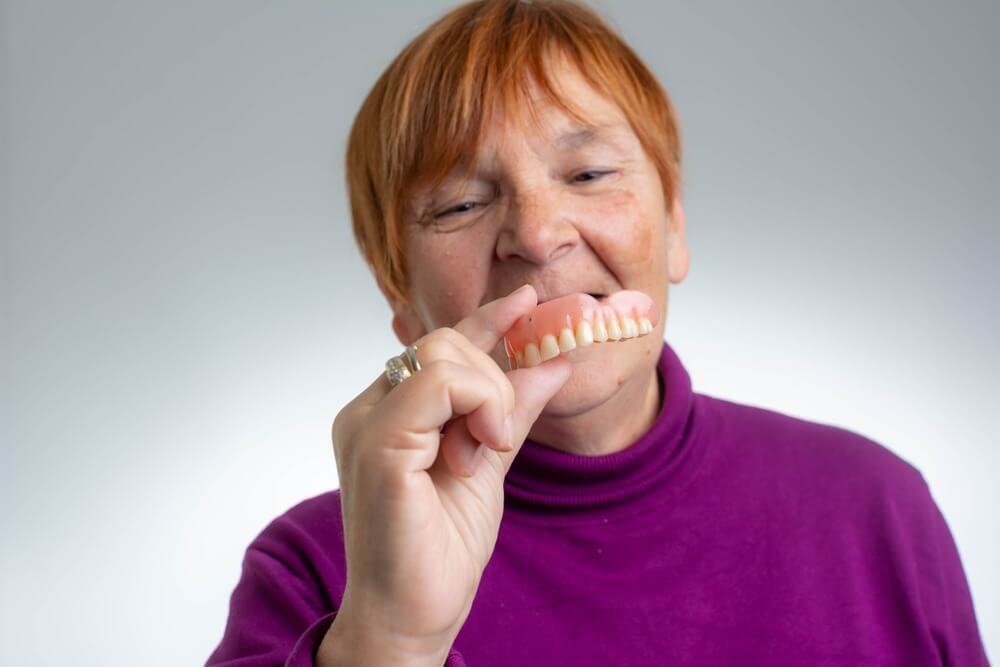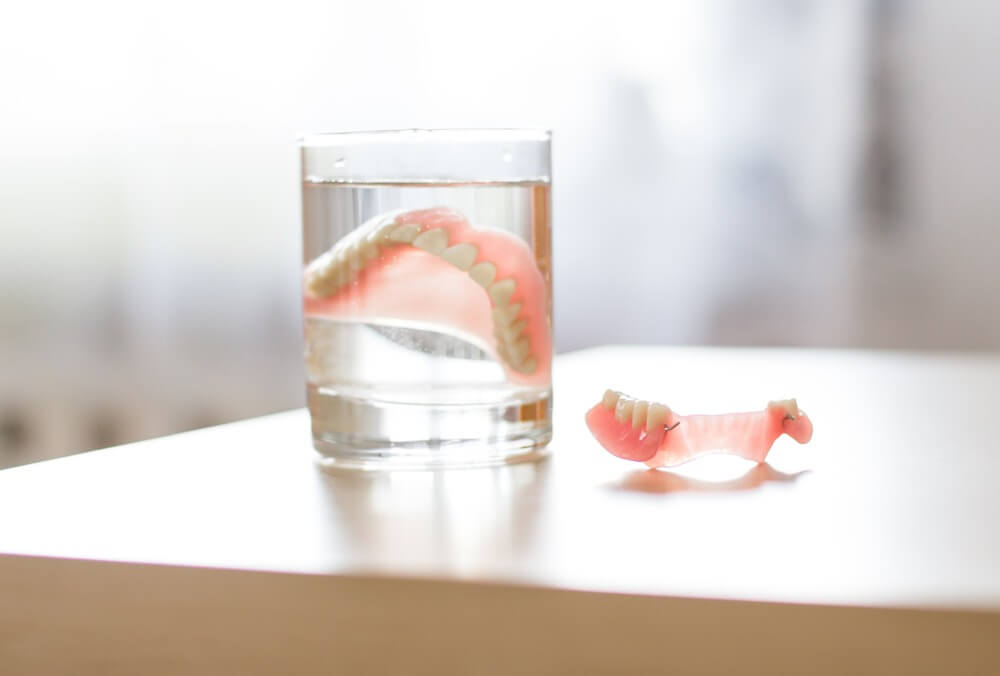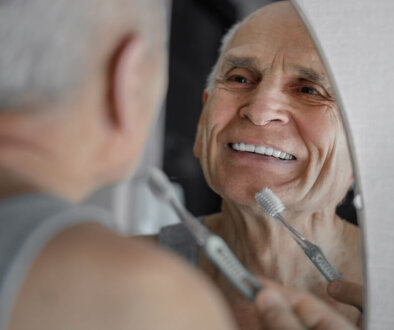Solutions for Common Denture Problems

Today’s dentures are not like the ones your grandparents wore. Advancements in the dental industry have given rise to more comfortable, natural-looking prosthetics.
Dentures are a wonderful, cost-effective solution to missing teeth, allowing people to restore their beautiful smiles and quality of life. However, like all objects, dentures are prone to a little wear and tear over the years, and without proper care, they can deteriorate much faster.
First-time denture wearers will inevitably experience some minor discomfort. It takes some time for their mouth, gums, tongue, and facial muscles to adjust. However, if the discomfort continues and becomes painful, it may be a sign of an ill-fitting denture.
Learning about the most common problems denture wearers experience and what to do if you encounter them can help you avoid prolonged soreness and pain.
Common Issues Faced by Denture Wearers

New dentures take time to get used to, and chances are you’ll encounter some issues before they feel completely comfortable in your mouth.
When you first begin wearing dentures, the muscles in your mouth will try to reject them. All this happens subconsciously and causes the appliance to feel loose. Wait a few days for your mouth to adapt before getting them adjusted.
Ill-fitting dentures can also hinder your ability to chew. If you can’t chew properly, you’re likely to give up whatever foods cause the most discomfort, negatively affecting your diet in the long run.
When wearing tissue-supported dentures, the prosthetic will move around and rub on your gums. Excess pressure on a particular area, which can be caused by loose dentures, results in the formation of sore spots that can get infected.
Poor oral hygiene is never good, but the effects are multiplied when wearing dentures. When dentures are not brushed or cleaned effectively, food particles get stuck and act as a hotspot for bacteria to grow. These harmful bacteria can cause a handful of problems including bad breath, discoloration, and gum disease.
How to Properly Take Care of Your Dentures

Denturists recommend that you clean your dentures at least once a day, though brushing twice a day is the best practice.
In the mornings, brush your dentures and gums. Before sleep, soak your dentures in a mild soap or dental cleaning solution. Rinsing your mouth with mouthwash designed for dentures also contributes to good oral health.
Chewing and talking while wearing ill-fitting dentures can cause the appliance to chip and break. A denture reline or rebase is needed to repair it.
Regular dental appointments, every six months, are an essential part of your oral health. However, if your dentures feel uncomfortable, begin to slip, are broken, or you’ve started to develop mouth sores, contact your denturist immediately.
Expert Denture Repair Services At Belleville Denture Clinic
Typically dentures should be replaced every five to seven years to ensure proper fitting, function, and appearance.
Before then, you should have your dentures regularly checked and repaired. Denture relines and rebases not only improve your denture fittings but help prolong their lifespan.
We only use the highest quality materials and the latest technologies to ensure your dentures fit and feel great. Our in-house lab closely monitors every step of the process and provides you with same-day repairs.
Reach out to us to learn more about our denture repair services and book your appointment today.


 613-779-9799
613-779-9799

